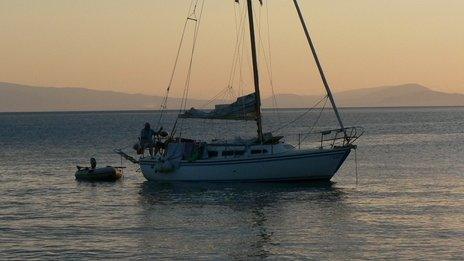Illegal fuel: 48% rise in 'pop-up garages'
- Published
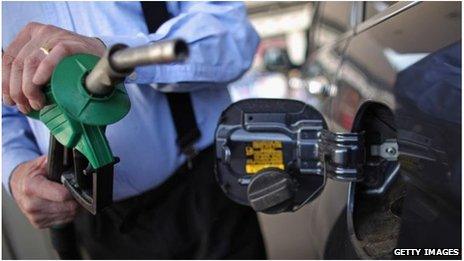
Illegally-sold fuel is often substandard and can damage vehicle engines
There has been a 48% increase in the detection of illegal fuel sales from so called "pop-up garages" in the UK, HM Revenue and Customs figures show.
The operators sell fuel which has been smuggled or is substandard after being mixed with cheaper chemicals.
They do not pay tax and cost the Exchequer hundreds of millions of pounds a year in what petrol retailers are saying is a "crimewave".
HMRC says its detection is improving and the illegal trade is reducing.
Figures from HMRC show that in the 2012-13 period it made 6,506 visits to sites in the UK.
It detected illicit fuel, mostly diesel, being sold on 388 occasions, compared with 262 detections in 2009-10.
Pat Curtis, of HMRC's specialist investigations unit, believes criminal gangs are feeding off the recession.
"Criminal gangs will take advantage of any tax differential to make money on it," he says.
"They'll take advantage of customers out there who may be feeling the pinch and may be feeling they're getting value for money."
Brian Madderson, chairman of the Petrol Retailers' Association (PRA), describes the pop-up garages as a "crimewave" engulfing the market.
"A stagnant economy gives rise to unemployment, especially for younger people, and lowers real wages," he says.
"The inevitable result is that criminal activity becomes an alternative despite the risks."
Tax losses
The fuel being sold is often substandard and can seriously damage car engines. The chemicals used by the gangs and the waste they produce also damage the environment.
No-one knows exactly how much excise fraud costs the government.
The most recent estimates by HMRC are from 2010-11, which calculate that the loss to the Exchequer could be anything between £150m to £700m.
HMRC insist that the trend is downwards, reflecting the success of its strategy to prevent fuel fraud.
But Edmund King, president of the AA, says anecdotal evidence suggests the opposite.
"We believe that the sales of illicit fuel are on the increase broadly linked to the increase in fuel prices and slump in the economy over the last four to five years," he says.
"Geographically it has spread from Northern Ireland, to the north of England and now down to the south east."
That view appears to be backed up by HMRC's own figures.
Testing improvements
In 2009-10, officers detected illegal fuel sales on 150 occasions in Northern Ireland and 112 in the rest of the UK.
Last year, there were 128 in Northern Ireland and 260 in the rest of the UK.
Brian Madderson, from the PRA, applauds the work HMRC has done in Northern Ireland, but argues it has to change focus.
"It is now time for them to focus their efforts on Great Britain," he says.
"Independent services stations continue to close at the rate of 175 to 200 each year, mostly in challenged rural areas, with loss of jobs and local facilities."
But Mr Curtis suggests the reported rise in sales in England, Scotland and Wales may be down to better testing.
"We were under no illusions that it was happening everywhere," he says.
'Affects everybody'
So just how easy is it to buy illegal fuel?
Our contacts led us to a warehouse on a trading estate in east London.
We asked if they sold "cheap diesel" and were offered fuel for £1.15 per litre - approximately 25p less than at the pumps.
The operator pumped 40 litres into the tank, we paid in cash and were given no receipt.
HMRC says all these are indicators of illicit fuel sales.
When we had the fuel siphoned from the car and tested, it was contaminated and substandard.
Mr Curtis says the criminals who sell, and the motorists who buy, are depriving the government of much-needed funds.
"The loss of this revenue affects how government works," he says.
"It affects everybody in their pocket."
- Published23 December 2019
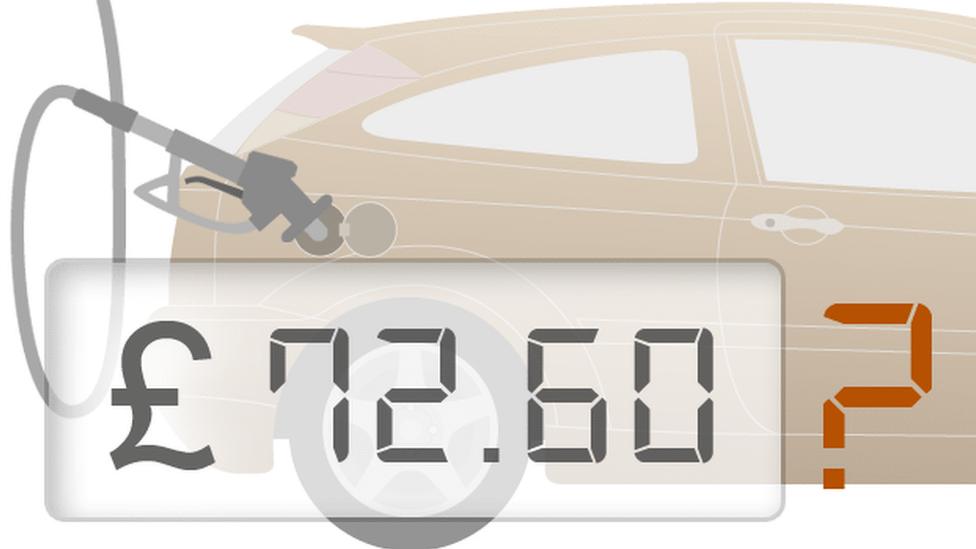
- Published15 May 2013
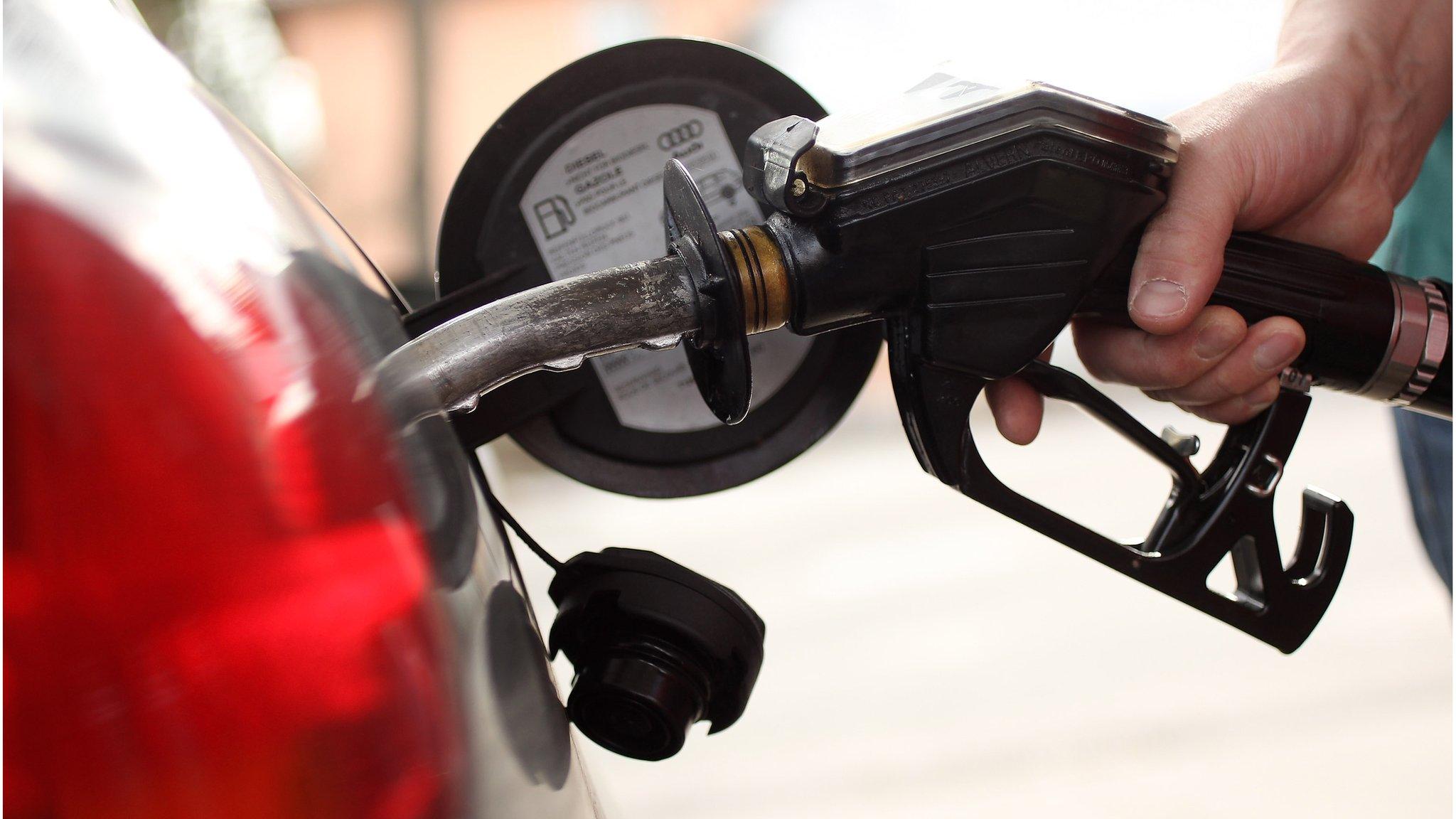
- Published22 February 2013
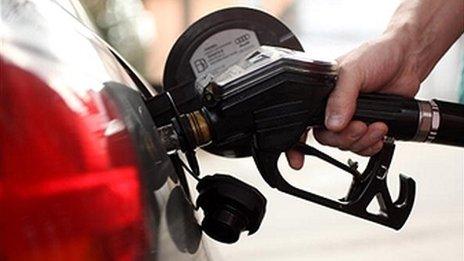
- Published30 May 2013
